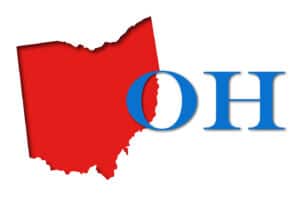HUD Secretary Shaun Donovan has announced the launch of HUD’s new Office of Sustainable Housing and Communities (OSHC). The office will be overseen by HUD Deputy Secretary Ron Sims. OSHC is designed to help build stronger, more sustainable communities by connecting housing to jobs, fostering local innovation and building a clean energy economy. Funded by Congress for the first time in HUD’s 2010 Budget, OSHC is a key component of the Obama Administration’s Partnership for Sustainable Communities.
“Through our new Office of Sustainable Housing and Communities, we will begin to tie the quality and location of housing to broader opportunities such as access to good jobs, quality schools, and safe streets,” said Donovan. “By working with DOT, EPA and other federal agencies, and with Deputy Secretary Sims’ guidance, we will finally begin to meet the needs of today without compromising the futures of our children and grandchildren .”
Under the management of Director Shelley Poticha, OSHC will be the center-point for all of HUD’s sustainability efforts. The average household spends more than half of its budget on housing and transportation, which have become American families’ two single biggest expenses. With OSHC as lead, HUD will work to improve access to affordable housing and transportation options, saving money for American families while allowing them more time to spend at home and less time traveling.
The office will also invest in energy-efficient homes and buildings, in renewable energy, and in next-generation infrastructure to lay the foundation for the clean energy economy America needs to compete and create jobs in the 21st century. To meet that goal, OSHC will strengthen HUD’s Energy Efficient Mortgage product and other energy retrofit financing options””for both single family homes and multi-family rental housing–through a $50 million Energy Innovation Fund. HUD will also make available an Affordability Index that measures the costs of where a home is located in relation to jobs, schools and transportation.
Congress provided $150 million to HUD for a Sustainable Communities Initiative. Of that amount, $100 million is available for regional integrated planning initiatives through HUD’s Sustainable Communities Planning Grant Program. To demonstrate HUD’s commitment to listening and learning, Secretary Donovan also announced today that a description of the future grant program is available for comment, including through an interactive wiki, on HUD’s web site.
With OSHC’s grant programs, HUD will provide funding to a wide variety of multi-jurisdictional and multi-sector partnerships and consortia, from Metropolitan Planning Organizations and State governments, to non-profit and philanthropic organizations. These grants will be designed to encourage regions to build their capacity to integrate economic development, land use, transportation, and water infrastructure investments, and to integrate workforce development with transit-oriented development. Accordingly, OSHC’s grants will be coordinated closely with the Department of Transportation (DOT) and Environmental Protection Agency (EPA).
Last June, the DOT, EPA and HUD created the unprecedented interagency Partnership for Sustainable Communities. Rooted in six Livability Principles, the three agencies are working together more closely than ever before to meet President Obama’s challenge to coordinate federal policies, programs, and resources to help urban, suburban, and rural areas build more sustainable communities. Traditionally there has been no coordination among federal housing, transportation and land use investments. For the first time the federal government will speak with one voice when it comes to housing, transportation and environmental policy, and in doing so will be partner to regions and local governments instead of a barrier.
In addition, Secretary Donovan and HUD are committed to providing the highest level of transparency as we work to streamline federal investments. That is why, in addition to launching the office today, HUD is also launching a new website, www.hud.gov/sustainability, so that the American people can track how their tax dollars are being spent and can hold their federal leaders accountable, and so that communities can have access to valuable resources needed to grow and develop.



